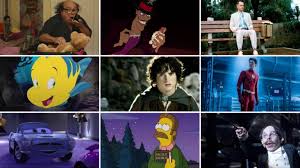Unmasking Icons: A Deep Dive into the Layers of Iconic Fictional Characters
Why Fictional Characters Captivate Us
From Sherlock Holmes to Tony Stark, these iconic fictional characters not only amuse us but also do much to shape culture, ignite arguments, and even shape our personal identity. So what exactly makes a character iconic? This article explores what’s underneath, digging into how they’re created, evolve, and persist.
The Anatomy of an Icon: What Makes a Fictional Character Timeless?
1. Relatability and Flaws
At the heart of every beloved character is a complex individual with strengths and weaknesses. Harry Potter’s vulnerability, Walter White’s moral ambiguity, and Katniss Everdeen’s resilience make them feel real. Their flaws are what make them memorable.
2. Consistent but Evolving Traits
Iconic characters maintain a recognizable core, but evolve over time. Batman remains driven by justice, but his expression of it has ranged from noir detective to conflicted antihero.
3. Strong Backstories
A rich backstory grounds characters in emotional reality. Whether it’s Bruce Wayne’s trauma or Daenerys Targaryen’s exile, their pasts define their motivations.
4. Clear Motivations
Characters like Frodo Baggins or Elizabeth Bennet have motivations that drive the story forward, creating emotional investment from the audience.
Archetypes and Subversion: Playing with Expectations
1. Classical Archetypes
Joseph Campbell’s “Hero’s Journey” is a blueprint. Characters like Luke Skywalker follow this path closely.
2. Breaking the Mold
Iconic characters also emerge by subverting expectations. Villanelle in “Killing Eve” or Tony Soprano flip archetypes on their head, offering fresh perspectives.
3. Cultural and Temporal Context
Characters resonate because they reflect or challenge their times. Think of how Captain America has evolved to mirror American values across decades.
Psychological Depth and Character Development
1. Inner Conflict
Characters like Severus Snape or Bojack Horseman are compelling due to internal struggles. Their psychological depth fuels complex story arcs.
2. Growth and Redemption
Arc-based development is key. Zuko in “Avatar: The Last Airbender” moves from villainy to heroism, creating a satisfying emotional journey.
3. Influence of Relationships
Interpersonal dynamics shape character evolution. Sherlock and Watson, or Arya and The Hound, demonstrate how relationships can deepen characterization.
The Cultural Impact of Iconic Characters
1. Becoming Symbols
Some characters transcend fiction to become cultural icons. Think James Bond, Superman, or Wonder Woman.
2. Fan Culture and Community
Fandoms play a critical role in a character’s longevity. Fanfiction, cosplay, and fan theories keep characters alive between installments.
3. Merchandising and Media Presence
A character’s presence across media and merchandising also cements their status. Pikachu, for instance, is more than a character it’s a global symbol.
The Writer’s Role: Creating the Iconic
1. Consistency and Complexity
Writers must balance consistency with development. Good writing ensures that changes in a character make narrative sense.
2. Dialogue and Voice
Memorable lines and distinct speech patterns enhance recognition. Tyrion Lannister’s wit or Hannibal Lecter’s eloquence create lasting impressions.
3. Visual and Symbolic Identity
Think of Indiana Jones’ fedora or Darth Vader’s breathing. Visual identity reinforces narrative significance.
Relevance in the Age of AI and Data
1. Data-Driven Character Creation
Studios now use data analytics to craft characters that resonate with audiences. Algorithms analyze fan engagement to shape development.
2. AI in Storytelling
AI-generated scripts and character arcs are on the rise, raising questions about authenticity and creativity.
3. Automation and Franchise Continuity
AI helps maintain consistency across expansive franchises by keeping track of character traits and storylines.
While automation can assist, the emotional resonance of a character still hinges on human insight and intuition.
The Timeless Allure of Fictional Icons
These iconic fictional characters are more than plot devices: They’re emotional anchors to whom we cling in times of crisis; touchstones of cultural moments that shape our understanding of the world around us; reflections of the human condition that resonate across time, gender, race and nationality. Born out of archetype or innovation, they resonate because of their humanity. As AI propels the future of storytelling, character will always have its roots in real emotion and a writer or creator with something to say.
Frequently Asked Questions (FAQ)
What makes a fictional character iconic?
A blend of relatability, consistent development, psychological depth, and cultural resonance makes a fictional character iconic.
Can AI create iconic fictional characters?
AI can assist in character creation through data, but emotional depth and originality still depend on human creativity.
Why do fans connect so deeply with fictional characters?
Characters reflect personal experiences, moral dilemmas, and aspirations, creating a strong emotional bond.
How do characters influence culture?
Iconic characters often reflect or shape societal values and trends, becoming cultural touchstones.
Are modern characters less iconic than older ones?
Not necessarily. Modern characters like Eleven (Stranger Things) or Geralt (The Witcher) are building iconic status through layered storytelling and cross-media presence.


